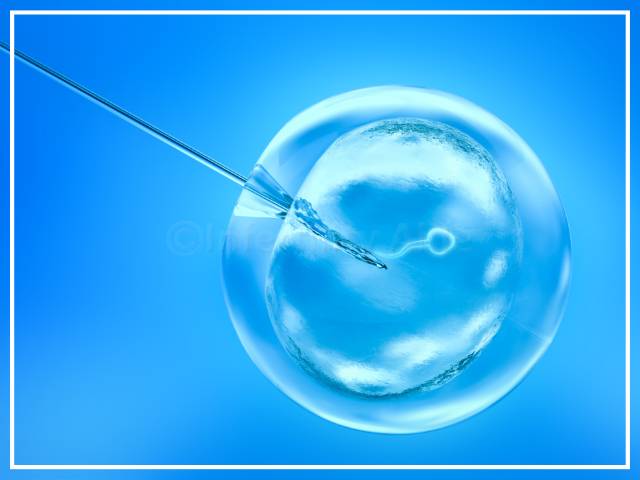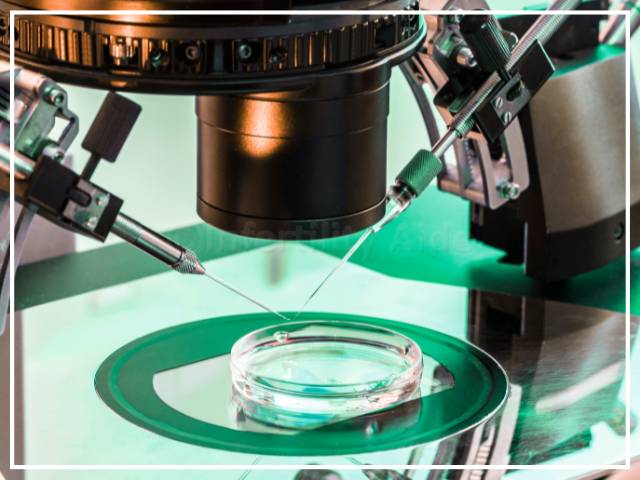- Are immature eggs in IVF common?
- What are the causes of immature eggs in IVF?
- What is the IVF protocol for immature eggs?
- Benefits of delayed IVF
- Can eggs fertilize after 24 hours of OPU?
- Can eggs fertilize after 48 hours of OPU?
- Who should consider delayed IVF?
- Immature eggs IVF success story
- Should you opt for IVM?
- Are normal results achieved with delayed IVF?
Immature eggs in IVF normally don’t make healthy embryos on fertilization but if they are allowed to mature in the laboratory for an extra day, they may turn into healthy, mature eggs that are capable of fertilizing well.
This process of delaying the fertilization of immature eggs collected from the ovaries is called delayed IVF or late fertilization pregnancy.
The fertilization potential of mature vs immature eggs in IVF is significant—while some clinics will allow them to go waste, there are a few clinics that are able to perform in-vitro maturation (IVM) to allow immature eggs to mature under controlled conditions in a laboratory so that they can become viable for use in IVF treatment.

Below we discuss the use of IVM by Dr. Colin Lee Soon Soo—one of the most successful IVF doctors in Malaysia—to help improve the chances of fertilization in an IVF cycle that would otherwise be abandoned due to inadequate quality of eggs.
Are immature eggs in IVF common?
10-15% immature eggs in any batch are considered normal in IVF but at times, most or all of the eggs retrieved are insufficiently developed.
During the egg retrieval stage of a traditional IVF, the COCs (or ‘cumulus oocyte complexes’ that contain both the egg and its surrounding fluid) are extracted using a microneedle and processed for fertilization in the lab.
Many studies (1) have demonstrated that the follicles measuring 18-22mm at the time of retrieval in IVF are ideal but if majority of the ovarian follicles are smaller than that after 10-14 days of ovarian stimulation, the likelihood of immature eggs is higher.
What are the causes of immature eggs in IVF?
- Lower ovarian reserve: In a study of 195 IVF cycles (2), researchers found that the percentage of immature eggs increased with female age. Women over 40 years of age had the highest number of immature eggs.
- Improper ovarian stimulation protocol: During IVF, not all follicles respond optimally to ovarian stimulation and the maturation of eggs may also be impacted by your body’s response to the drugs. An experienced doctor should be able to adjust the medications and their dosages to optimize follicular development for you.
- Premature ovulation: If the HCG trigger injection is administered too soon in the cycle, it could result in premature ovulation before the eggs have reached maturity.
- Underlying ovarian conditions: Conditions such as polycystic ovarian syndrome (PCOS) or premature ovarian insufficiency (POI) cause higher chances of retrieving immature eggs in IVF.
- Poor ovarian function: Advanced age and lifestyle factors such as stress, smoking, excessive alcohol, poor nutrition, etc. can negatively impact ovarian function and result in the retrieval of immature eggs.
- Ovarian damage due to prior surgery: Any damage to the ovaries may cause problems in the development and maturation of eggs, and as result the eggs retrieved may be immature.

What is the IVF protocol for immature eggs?
In the absence of mature eggs in the COC, the IVF cycle may be canceled, but if your clinic is equipped for in-vitro maturation of eggs, you could simply adapt to delayed IVF.
The original process of oocyte in vitro maturation (IVM) or delayed IVF has been available since the 1990s, but not all clinics offer the treatment as it is technically quite challenging.
Benefits of delayed IVF
In delayed IVF, any immature oocyte is matured in the lab using hormonal drugs, oocyte growth factors (such as the protein dimer – ‘cumulin’), while it is allowed to develop under controlled conditions. The fully matured oocytes are then used exactly as they would have been in a conventional IVF cycle.
The procedure allows for maturation of immature oocytes, improves chances of fertilization, generates additional embryos, improves blastocyst production rate, and thus, increases your chances of conceiving—all before your doctor decides to cancel the cycle.
There need not be any delay in transferring the embryo—you can opt for fresh or frozen embryo transfer.

Can eggs fertilize after 24 hours of OPU?
Yes, it may be possible for eggs to fertilize after 24 hours of the ovum pick-up (OPU). As the immature eggs are kept in the laboratory and left to mature in incubators under optimal conditions for about 24 hours, if any of them mature adequately, the sperm can be introduced into the egg, preferably through ICSI.
The fertilized egg is then cultured for 5 days to obtain a blastocyst (in some cases it may be considered to grow the blastocyst up to day 7). Once they are ready, the most viable embryos are implanted in the uterus.
Can eggs fertilize after 48 hours of OPU?
There isn’t enough evidence that shows eggs can develop through IVM after 48 hours of retrieval.
Who should consider delayed IVF?
IVM for immature eggs is offered to patients who have:
- PCOS or are at risk of developing ovarian hyperstimulation syndrome (OHSS) with gonadotropin stimulation (3).
- Women with a poor ovarian reserve
- Patients with low progesterone levels
- Patients who had poor response to ovarian stimulation or too many immature eggs in their previous IVF cycles, facing multiple cycle cancellations
The evidence for the success of this procedure can also be found in a study where immature oocytes in low responders (those having less than 7 mature oocytes) from different age groups were cultured for an additional 18 to 24 hours in 434 IVF cycles (4). It was found that delayed-ICSI generates additional blastocysts for low responders.
Thus, the extensive procedure can be used to optimize the IVF cycle and clinical outcomes.
A woman opting for delayed IVF should preferably have healthy fallopian tubes, good endometrium receptivity, and a male partner with a healthy semen analysis.
Immature eggs IVF success story
Although delayed IVF has been practiced for decades and is no longer considered experimental, the uptake of the technique in clinical practices is quite limited.
However, there are impressive success stories like that of Peggy and Tim.
Knowing that delayed IVF might offer them their last chance to become parents, Tim and Peggy sought treatment with Dr. Colin Lee, who has over 40 years of experience in treating infertility.
During the treatment, Peggy’s eggs were kept for maturation in the lab for 18-24 hours before fertilizing them via ICSI. The resultant embryos were then cultured for up to 7 days and the most viable embryos from the lot were implanted in Peggy’s uterus.
They conceived successfully and went to have a healthy baby boy.
Should you opt for IVM?
Dr. Lee says that many successful pregnancies in his practice have resulted from using immature eggs that would have been discarded otherwise.
According to him it is an excellent option for patients who are unlikely to have a good number of normally fertilized eggs in the traditional approach. Such patients should have their immature eggs cultured for another day with delayed-ICSI to generate more utilizable blastocysts.
Are normal results achieved with delayed IVF?
After carrying out pre-implantation genetic testing (PGT) on the embryos to identify any abnormalities, Dr. Lee’s clinic found that “blastocysts cultured this way can be chromosomally normal, and therefore safe for embryo transfer.”
To find the right fertility scpecialist for PCOS and the possibility of immature eggs in IVF, use the red message button and get in touch.
References:
- Rachmawati, A., Krisnadi, S.R., Santoso, S.A. et al. Association between follicle size, endometrial thickness, and types of ovarian stimulation (Clomiphene citrate and Letrozole) with biochemical pregnancy rate in women undergone intrauterine insemination. BMC Res Notes 16, 286 (2023). https://doi.org/10.1186/s13104-023-06529-2
- Lee, H. J., Jee, B. C., Suh, C. S., Kim, S. H., & Moon, S. Y. (2012). Oocyte maturity in relation to woman’s age in in vitro fertilization cycles stimulated by single regimen. Yonsei medical journal, 53(1), 181–185. https://doi.org/10.3349/ymj.2012.53.1.181
- Kyung Sil Lim, Soo Jin Chae, Chang Woo Choo, Yeon Hee Ku, Hye Jun Lee, Chang Young Hur, Jin Ho Lim, and Won Don Lee. In vitro maturation: Clinical applications. Clin Exp Reprod Med. 2013 Dec; 40(4): 143–147. Published online 2013 Dec 31. [doi: 10.5653/cerm.2013.40.4.143]
- Z Q Tee, J P Sam, A Y X Lim, C S S Lee, P–220 Delayed-ICSI on day1-matured oocytes in low responders of different age groups. Human Reproduction, Volume 36, Issue Supplement 1, July 2021. [https://doi.org/10.1093/humrep/deab130.219]
Reviewd by: Dr. Meenakshi, PhD